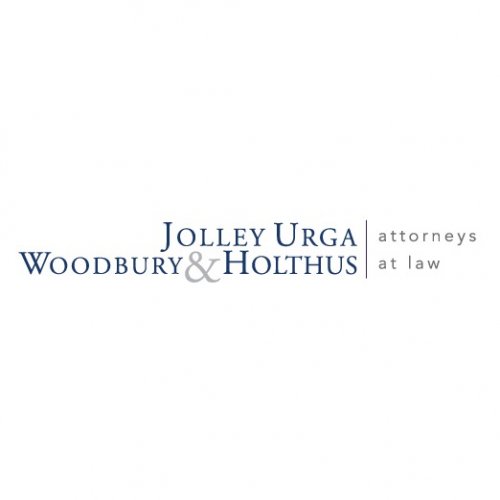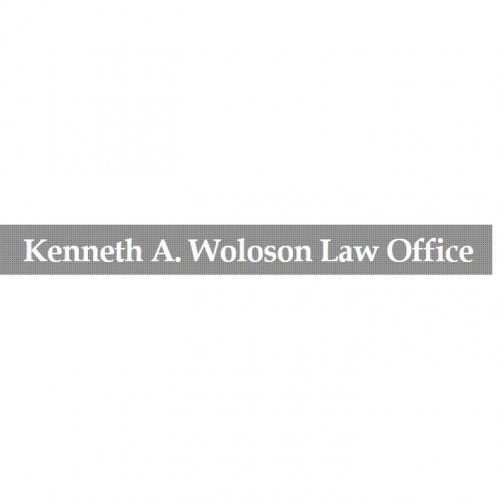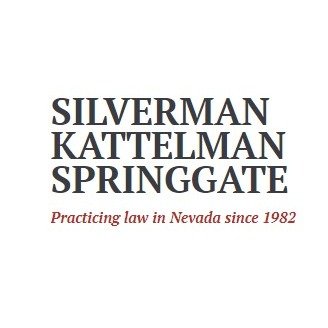Best Elder Abuse Law Lawyers in Nevada
Share your needs with us, get contacted by law firms.
Free. Takes 2 min.
Or refine your search by selecting a city:
List of the best lawyers in Nevada, United States
About Elder Abuse Law in Nevada, United States
Elder abuse law in Nevada focuses on the protection of individuals aged 60 and older from various forms of mistreatment, including physical abuse, emotional abuse, neglect, exploitation, and abandonment. The state of Nevada has specific statutes and procedures in place to recognize, investigate, and prosecute elder abuse, while also providing support to victims and their families. The primary aim is to safeguard seniors, prosecute offenders, and ensure a safe and respectful environment for older adults in all settings, including private homes and care facilities.
Why You May Need a Lawyer
Legal assistance is often essential when dealing with elder abuse for several reasons:
- If you suspect a loved one is being abused or neglected in a nursing home or by a caregiver, a lawyer can help investigate and take immediate action.
- Victims of financial exploitation or fraud may need help to recover lost assets and stop further losses.
- Family disputes concerning guardianships or powers of attorney can be resolved with legal guidance.
- Complex emotions and relationships can make communication with abusers difficult; a lawyer can advocate for the victim's rights effectively.
- If criminal charges are involved, or if you are wrongly accused, legal representation is vital for navigating the system and protecting your interests.
Local Laws Overview
Nevada law classifies elder abuse as a range of acts that cause harm or the threat of harm to people aged 60 and above. Key legal points include:
- Mandatory Reporting: Certain professionals, such as healthcare providers, social workers, and law enforcement officers, are legally required to report suspected elder abuse.
- Types of Abuse: The law addresses physical, emotional, sexual, and financial abuse, as well as neglect and exploitation.
- Lawsuits and Criminal Charges: Both civil and criminal actions can be pursued against alleged abusers. Penalties are severe, especially if the abuse leads to serious injury or death.
- Protective Orders: Courts can issue immediate protection orders for the victim's safety.
- Investigative Process: The Nevada Aging and Disability Services Division (ADSD) investigates reports of abuse and coordinates support services.
Frequently Asked Questions
What is considered elder abuse in Nevada?
Elder abuse includes physical harm, emotional distress, neglect, abandonment, sexual abuse, financial exploitation, or the failure to provide necessary care to someone aged 60 or older.
Who is required to report suspected elder abuse in Nevada?
Healthcare professionals, social workers, counselors, law enforcement personnel, and certain others are mandated by law to report any suspicion or knowledge of elder abuse.
How can someone report elder abuse in Nevada?
Reports can be made to Adult Protective Services, local law enforcement, or the Long Term Care Ombudsman. In emergencies, call 911 immediately.
What happens after a report is made?
Authorities conduct an investigation, which may involve interviews, safety checks, and coordination with healthcare and social services to protect the victim.
Are there criminal penalties for elder abuse in Nevada?
Yes, individuals found guilty of elder abuse can face misdemeanors or felonies, depending on the severity, with possible imprisonment and significant fines.
Can family members initiate legal action on behalf of an abused elder?
Yes, a family member or legal guardian can file lawsuits or petitions for protective orders to stop abuse and recover damages.
Is financial exploitation treated differently than other forms of elder abuse?
Financial exploitation is prosecutable and can result in civil and criminal penalties. Restitution and asset recovery are often sought alongside criminal prosecution.
What protections are available for abused elders?
Elders can receive immediate safety interventions, court-ordered protective orders, counseling, and referral to social services.
Can an abuser be removed from the victim's home?
Yes, courts can issue orders removing abusers from the victim’s residence if necessary for the elder's safety.
How long do you have to take legal action for elder abuse?
Statutes of limitations vary based on the type of abuse and legal action, but prompt reporting and consultation with an attorney are recommended to preserve all legal options.
Additional Resources
If you need guidance, the following Nevada organizations and agencies can provide information and support:
- Nevada Adult Protective Services (APS): Investigates and assists in cases of elder abuse or neglect.
- Nevada Aging and Disability Services Division (ADSD): Coordinates support for elders and disabled adults.
- Nevada Long Term Care Ombudsman Program: Advocates for residents of nursing homes and assisted living facilities.
- State Bar of Nevada Lawyer Referral & Information Service: Connects individuals with qualified elder law attorneys.
- Legal Aid Center of Southern Nevada: Offers free or reduced cost legal help in elder abuse matters.
Next Steps
If you suspect elder abuse or need legal help, it is important to act quickly. Begin by ensuring immediate safety, and then report any abuse to Adult Protective Services or local authorities. Collect all relevant documents and evidence, such as medical records and financial statements. Contact a Nevada elder law attorney to discuss your concerns, understand your rights, and determine the best course of action. Early legal intervention can stop abuse, prevent further harm, and help your loved one receive the protection and justice they deserve.
Lawzana helps you find the best lawyers and law firms in Nevada through a curated and pre-screened list of qualified legal professionals. Our platform offers rankings and detailed profiles of attorneys and law firms, allowing you to compare based on practice areas, including Elder Abuse Law, experience, and client feedback.
Each profile includes a description of the firm's areas of practice, client reviews, team members and partners, year of establishment, spoken languages, office locations, contact information, social media presence, and any published articles or resources. Most firms on our platform speak English and are experienced in both local and international legal matters.
Get a quote from top-rated law firms in Nevada, United States — quickly, securely, and without unnecessary hassle.
Disclaimer:
The information provided on this page is for general informational purposes only and does not constitute legal advice. While we strive to ensure the accuracy and relevance of the content, legal information may change over time, and interpretations of the law can vary. You should always consult with a qualified legal professional for advice specific to your situation.
We disclaim all liability for actions taken or not taken based on the content of this page. If you believe any information is incorrect or outdated, please contact us, and we will review and update it where appropriate.
Browse elder abuse law law firms by city in Nevada
Refine your search by selecting a city.











